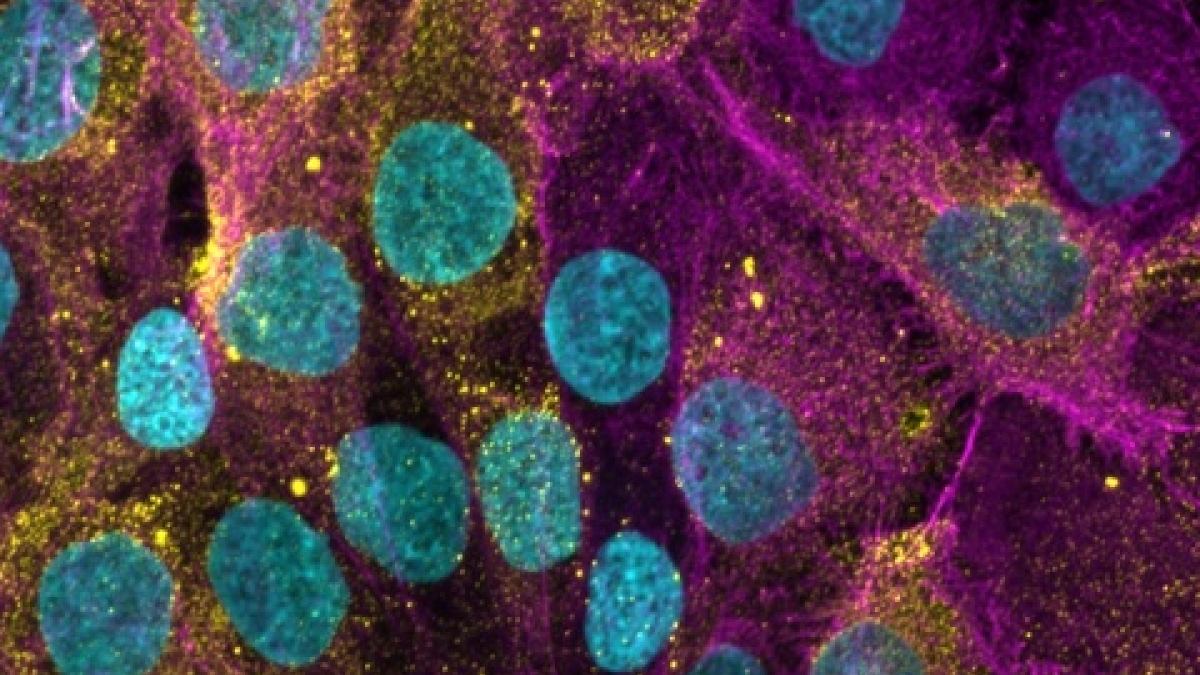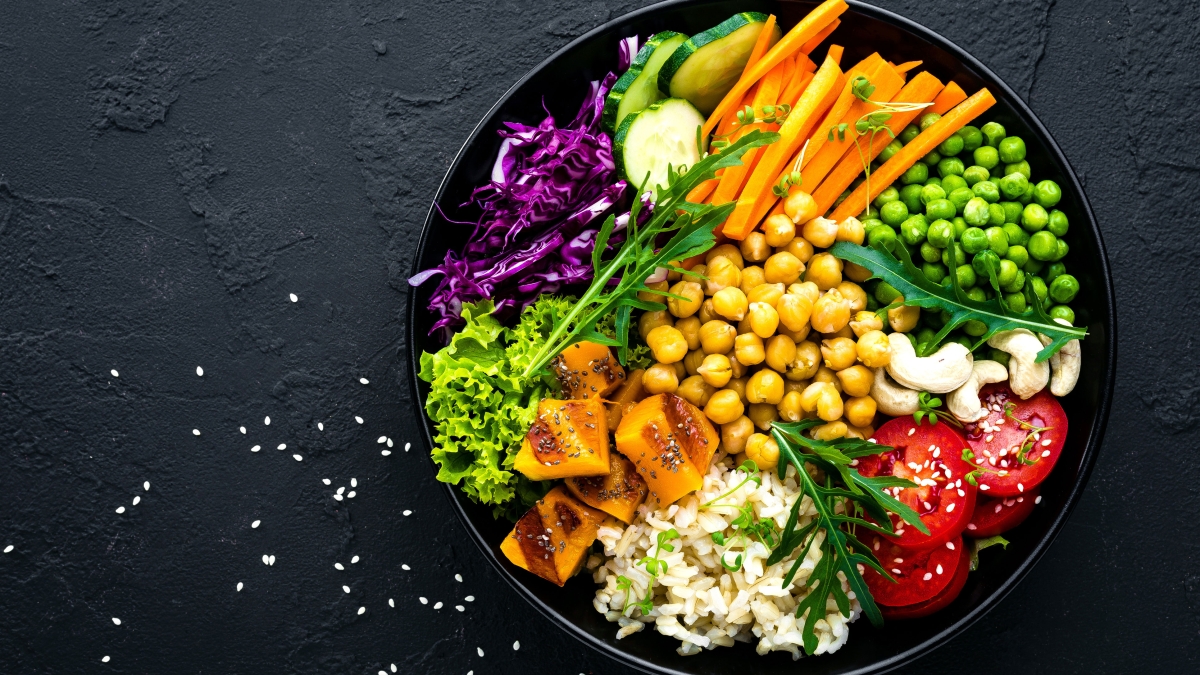Colleen Patrick-Goudreau didn’t grow up vegan.
She grew up in New Jersey.
As well as eating a typical omnivorous diet in the land of gabagool and prosciutto, her family owned ice cream stores. They had a separate freezer for ice cream in the house.
Now an expert and leader in vegan living, Patrick-Goudreau recently spoke at Arizona State University on how to become, and stay, vegan. Her new book, “The Joyful Vegan: How to Stay Vegan in a World That Wants You to Keep Eating Meat, Dairy, and Eggs,” was published this month. The talk was sponsored by the Julie Ann Wrigley Global Institute of Sustainability.
Like most children, she always loved animals. But Patrick-Goudreau pointed out that by age 5 or 6, kids have developed a taste for meat. “(Animals) don’t feel the way we do,” her mother told her in the conversation intended to build a bridge between lovable Disney characters like Bambi and dinner. “They’re sacrificing themselves for us.”
“The compassion didn’t go away,” she said. “It just became covered up. … We start to compartmentalize our compassion.”
By the time people become adults, she said, compassion is regarded as sentimentality. But Patrick-Goudreau read a book titled “Diet for a New America,” an exposé on connections between diet, physical health, animal cruelty and environmentalism.
“I stopped eating land animals,” she said. “I was the lone animal advocate in New Jersey.”
She spent afternoons wandering malls with stacks of literature in her hands, talking to anyone who would listen. There weren’t many who would.
Vegetarians don’t eat animal flesh. Vegans don’t eat any food product that comes from animals, including eggs, milk and cheese.
Patrick-Goudreau became a vegan after reading a book about slaughterhouses: “This is a culture of violence in the slaughterhouses,” she said.
Her transformation wasn’t so much about becoming a vegan as it was removing the blanket that had covered her childhood compassion.
“It feels pretty good,” she said.
Then she encountered what she says is a typical reaction to vegans: "We don’t want to know."
“I just figured if I could share (the knowledge) with others, they would change,” she said.
They did not. People are creatures of habit. They eat the same foods and go to the same restaurants and cook the same dishes year in and year out.
“What scares us more than anything is change,” Patrick-Goudreau said.
Deciding to make the jump to veganism is one thing. It’s the rest of it that’s intimidating: Where do I shop? How do I cook? What about travel, where there’s often not many options? What about holidays? Grandma’s going to be heartbroken when you don’t want her Christmas special with the ham hocks in it.
Patrick-Goudreau said her new book attempts to address issues like that. “The Joyful Vegan” goes over a number of steps to help every vegan overcome issues like guilt over not eating Grandma’s holiday special. And there are stages to vegan success.
“I tried whatever I could to give people the tools,” she said. “Food is the easy part.”
It’s the social, cultural and emotional hurdles that are more difficult to surmount.
“It’s not a mystery as to why people struggle and quit becoming vegan,” she said. But freaking out over cooking dinner in the same pan someone once fried pork chops in is not going to get you anywhere.
“Being a vegan is not an end in itself. … I aspire to be as compassionate as possible.”
Speak your truth when coming out as vegan, she said, but spare bystanders “vegangelicalism.” There’s a line to be walked between passion and proselytization.
“The angry vegan is a stereotype, but stereotypes exist for a reason,” Patrick-Goudreau said. “Beneath anger is sadness. … I don’t think you have to be outraged all the time to show you care.”
Find your voice and learn how to communicate, she recommended.
“I do not want to live among vegans only, to be honest,” she said. “We can’t have one identity dominate all others.”
In the end there are only two options: Be positive or be negative.
“Where you once saw limitation, now you see liberation,” she said. “My message is, ‘Never say never and be open to possibility.’”
Top photo: It might be easy to compile a vegan bowl of grilled squash, chickpeas and other veggies, but coming to terms with the social and cultural obstacles to veganism is harder, says vegan lifestyle author Colleen Patrick-Goudreau. Photo by Yelena Yemchuk/Getty Images/iStockphoto
More Health and medicine

ASU study uses new biomaterials for wound healing
A minor cut often heals within days, vanishing without a trace. Yet, wound healing and tissue repair are complex biological processes, revealing the body’s remarkable regenerative capacity.In a new…
ASU team part of nationwide study looking at Type 2 diabetes in youth
Near the end of an interview in which he talked about the work his team will be doing to tackle the rise in Type 2 diabetes among youth, Arizona State University Professor Gabe Shaibi answered why…
Leading the way in wellness: ASU highlighted in The Princeton Review's 2025 Mental Health Services Honor Roll
Being a college student isn’t easy — navigating new routines, people and places can be a challenge, especially if the right support system is not in place. That's why Arizona State University is a…
